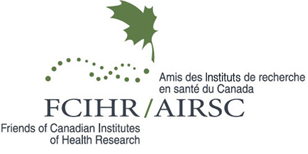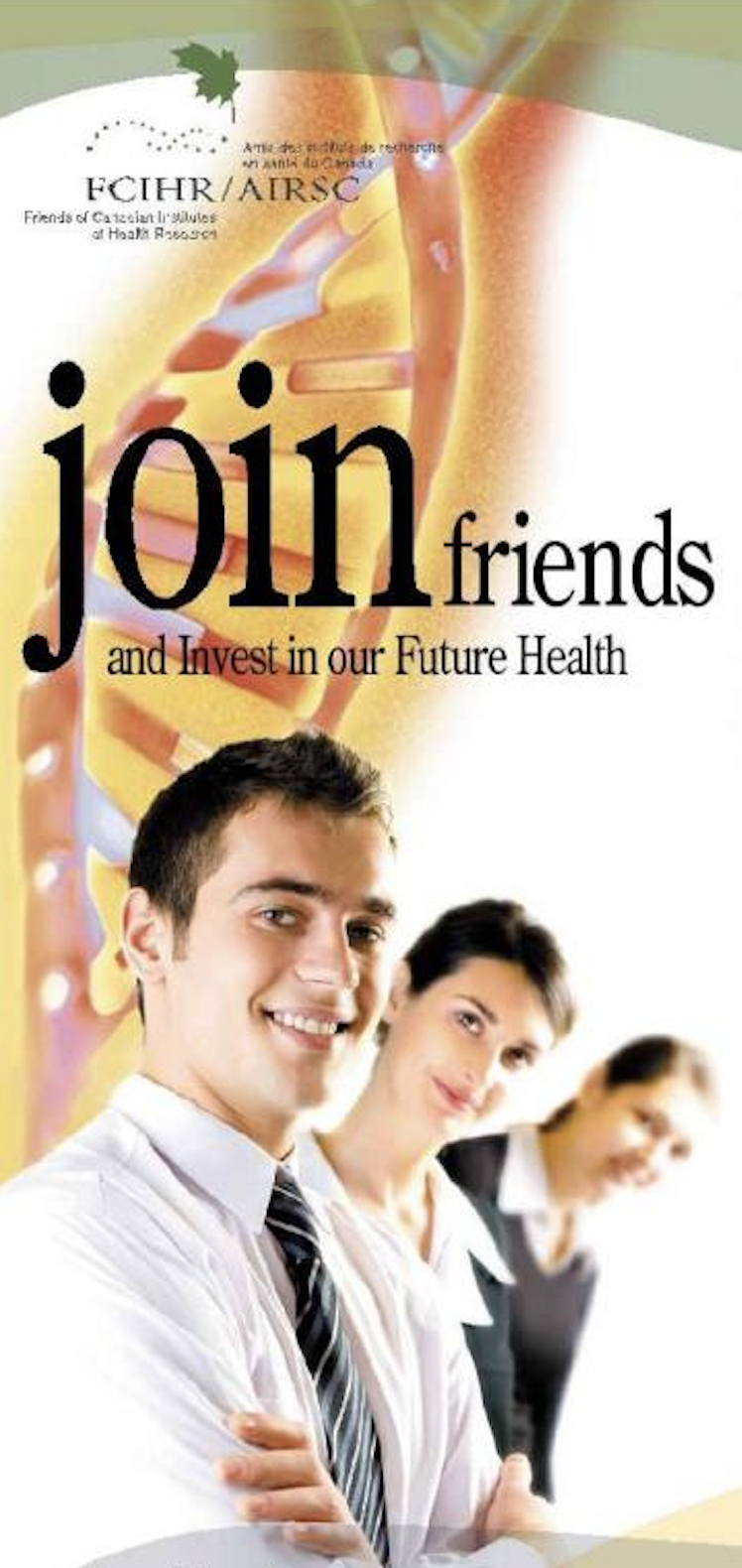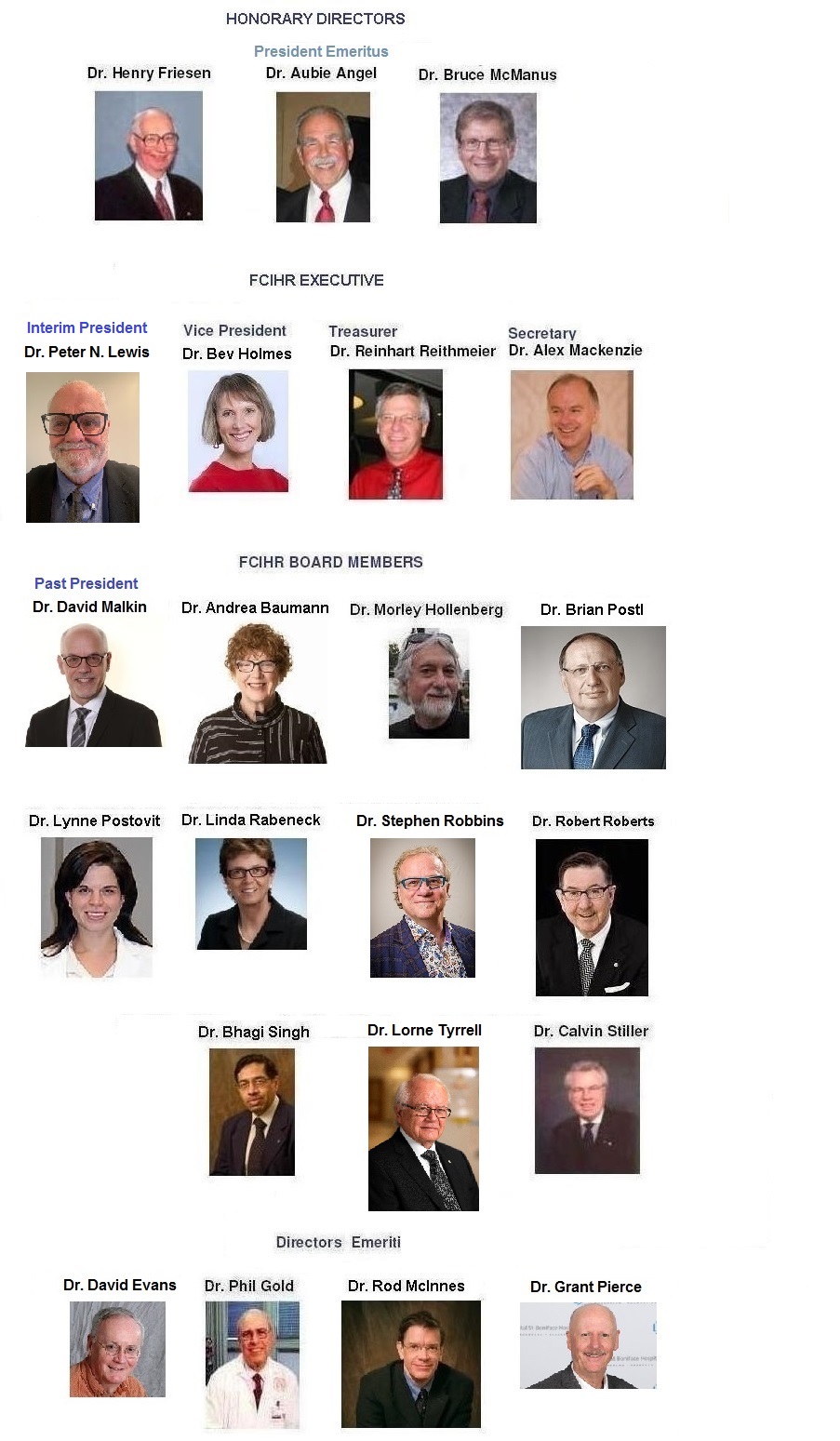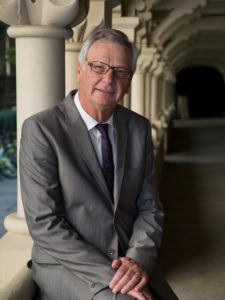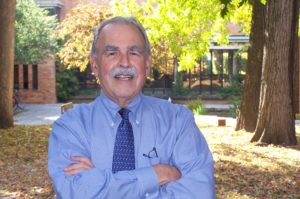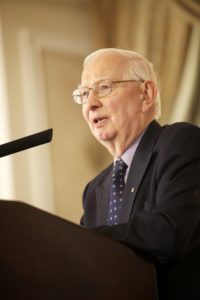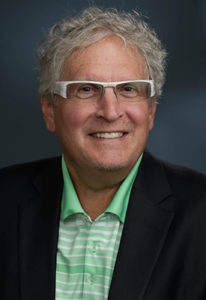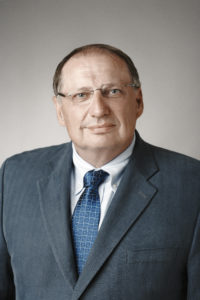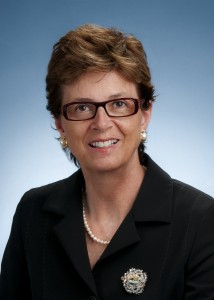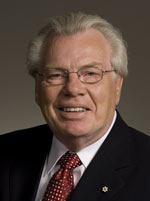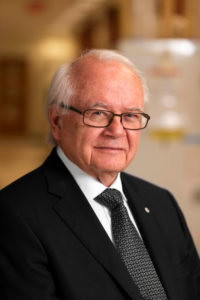BOARD OF DIRECTORS
Le Conseil dŌĆÖadministration
Governance
Friends of CIHR is managed by a 15-person Board of Directors elected from the membership at an Annual General Meeting held each autumn in a selected metropolitan centre. Members of the Board of Governors hold terms of office for up to three years and may stand for re-election for any number of terms. Directors serve without remuneration. The Board meets semi-annually through conference calls and a four-person Executive Council, consisting of the President, Vice President, Treasurer and Secretary, meets as often as required to ensure the business of the organization moves forward.
Ad Hoc and Standing Committees may be formed from time to time as required. Currently, an Advisory Committee assists with the management of The Henry G. Friesen International Prize in Health Research. The Board represents a membership active in universities, hospitals, voluntary organizations, community groups and agencies, as well as some private corporations, across the nation.
Dr. Peter N. Lewis – Interim President, Friends of CIHR – Effective January 1, 2024
 Click here to Download Announcement
Click here to Download Announcement
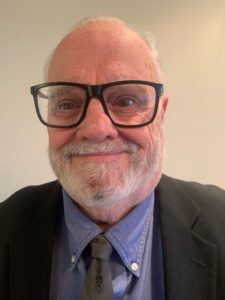 Dr. Peter N. Lewis, PhD, FCAHS,
Dr. Peter N. Lewis, PhD, FCAHS,
is appointed Interim President, Friends of CIHR
Toronto ŌĆō January 1, 2024 ŌĆō The Board of Directors of Friends of Canadian Institutes of Health Research (FCIHR) is pleased to announce that Dr. Peter N. Lewis, PhD, FCAHS is appointed Interim President, FCIHR ŌĆō effective January 1, 2024.
Dr. Peter N. Lewis is Professor Emeritus of Biochemistry at the University of Toronto, Board Chair of the Charles H. Best Foundation. He joined the Department of Biochemistry at the University of Toronto as an Assistant Professor in 1974. Since 1991 he has held a number of leadership roles including Department Chair, Vice Dean Research and International Relations in the Faculty of Medicine (2002-2010) and Associate VP Research ŌĆō Global Research Partnerships in Simcoe Hall (2010-2016). He has been involved in the formation of many UofT entities including the Donnelly Centre for Cellular and Biomolecular Research and the Structural Genomics Consortium. Centrally he was involved in restructuring the UofT Tech Transfer Office and the creation of IC-IMPACTS, SOSCIP and CCRM. His research interests include Alzheimer’s disease; the structure and function of chromosomes with specific reference to gene regulation; protein folding and artificial intelligence applied to drug discovery.
Dr. Lewis who succeeds Dr. Malkin, former President of FCIHR, remarks:
ŌĆ£It is a great honour to take on this role as the FCIHR seeks to redefine its role in the Canadian research ecosystemŌĆØ
FCIHR is a national not-for-profit organization that was established in 2000 to support the goals and ideals of the Canadian Institutes of Health Research (CIHR) and to communicate the value of health research to a broad, multifaceted public audience. Through a spectrum of programs, FCIHR also seeks to attract and support young health science trainees and scientists in their career development. The Henry G. Friesen International Prize in Health Research program, which began in 2006 and which includes visits and scholarly events in Canadian universities, exemplifies our mission. FCIHR also convenes public gatherings and roundtables of experts to discuss important health sciences issues of the day, and therein collaborates with like-minded Canadian health science organizations in all sectors.
For further information on Friends of CIHR and its various programs, please visit: www.fcihr.ca or contact: Cristina S. Castellvi. Tel. #: (416) 506-1597. Email: FriendsofCIHR@gmail.com
Dr. David Malkin
Past President & Board Chair – January 1, 2022 to December 31, 2023
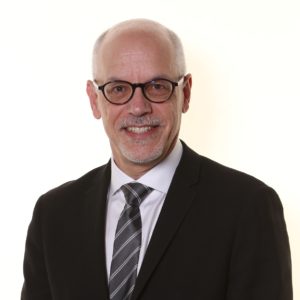 Dr. David Malkin, clinician-scientist, cancer physician and academic leader, is appointed 2nd President of Friends of CIHR
Dr. David Malkin, clinician-scientist, cancer physician and academic leader, is appointed 2nd President of Friends of CIHR
 Click here to Download Announcement
Click here to Download Announcement
Toronto ŌĆō October 15, 2021 ŌĆō The Board of Directors of Friends of Canadian Institutes of Health Research (FCIHR) is pleased to announce that Dr. David Malkin, MD, FRCPC is appointed President and Board Chair of FCIHR ŌĆō effective January 1, 2022. Dr. Malkin is a pediatric oncologist, an active clinician-scientist, a committed educator and an accomplished administrative leader.
Dr. Malkin is Professor of Pediatrics and Medical Biophysics in the Faculty of Medicine at the University of Toronto and is the CIBC ChildrenŌĆÖs Foundation Chair in Child Health Research, Director of the Cancer Genetics Program, and co-lead of the Precision Child Health initiative at the Hospital for Sick Children. In addition, he leads regional and national programs in precision oncology for children, adolescents and young adult cancer patients with the aim to transform the outcomes for these patients. Dr. MalkinŌĆÖs research program focuses on genetic and genomic mechanisms of childhood cancer susceptibility, advances from which have led him to receive many awards and recognitions.
Dr. Malkin succeeds Dr. Aubie Angel, founding President of FCIHR, who notes:
ŌĆ£I am delighted with this Appointment as Dr. David Malkin brings new energy and perspective to the vision and mission of FCIHR and will provide fresh leadership and direction for the many members of our vibrant enterpriseŌĆØ.
FCIHR is a national not-for-profit organization that was established in 2000 to support the goals and ideals of the Canadian Institutes of Health Research (CIHR) and to communicate the value of health research to a broad, multifaceted public audience. Through a spectrum of programs, FCIHR also seeks to attract and support young health science trainees and scientists in their career development. The Henry G. Friesen International Prize in Health Research program, which began in 2006 and which includes visits and scholarly events in Canadian universities, exemplifies our mission. FCIHR also convenes public gatherings and roundtables of experts to discuss important health sciences issues of the day, and therein collaborates with like-minded Canadian health science organizations in all sectors.
For further information on Friends of CIHR and its various programs, please visit: www.fcihr.ca or contact: Cristina S. Castellvi. Tel. #: (416) 506-1597. Email: FriendsofCIHR@gmail.com
——————————————————————————————————————–
Dr. Bev Holmes (Vice President, FCIHR)

https://www.msfhr.org/about/our-people
As President & CEO of the Michael Smith Foundation for Health Research, Bev is focused on the funding, production and uptake of health research and health care-related evidence in British Columbia.
Her leadership and commitment to integrating these areas is evident in her work at MSFHR and as vice president of Friends of CIHR, as well as her lead role in developing the BC SUPPORT Unit.
Since joining MSFHR in 2010, Bev has supported the Foundation through a period of organizational redesign and program expansion, and helped establish MSFHRŌĆÖs reputation as a leader in knowledge translation. Under her leadership, the Foundation has launched a new suite of funding programs that focus on developing, retaining, and recruiting the talented people whose research improves the health of British Columbians, addresses health system priorities, creates jobs and adds to the knowledge economy.
Bev is an active and respected member of the health research community and is regularly called upon to publish and present internationally on health research funding, and how best to support the translation of research evidence into policy and practice.
BevŌĆÖs roles prior to MSFHR include health communications and knowledge translation consultant, researcher, writer and communications director. Bev received her MA and PhD from SFUŌĆÖs School of Communication and holds adjunct appointments at UBCŌĆÖs School of Population and Public Health and SFUŌĆÖs Faculty of Health Sciences. Her research interests include knowledge translation, discourse analysis, health communication, risk communication, and public involvement in health research.
Dr. Reinhart Reithmeier (Treasurer, FCIHR)
http://biochemistry.utoronto.ca/person/reinhart-af-reithmeier/
Reinhart Reithmeier obtained his B.Sc. at Carleton University in 1972 and his Ph.D. in Biochemistry at the University of British Columbia in 1977. Following post-doctoral training at Harvard and the University of Toronto he obtained his first faculty position at the University of Alberta in 1980. Dr. Reithmeier is known internationally for his research on anion transport membrane proteins in human health and disease. An award-winning lecturer, Dr. Reithmeier enjoys teaching introductory biochemistry to 1,000 undergraduate students every year, as well as upper level and graduate courses. As former Chair of Biochemistry and a Special Advisor to the Dean of Graduate Studies on graduate professional and leadership development, Dr. Reithmeier is dedicated to ensuring that graduate students have the skill set and network to be fully prepared to take advantage of the diverse job opportunities available to them in todayŌĆÖs global marketplace. His leadership was recognized in 2012 by election to the Canadian Academy of Health Sciences.
Dr. Alex MacKenzie (Secretary, FCIHR)
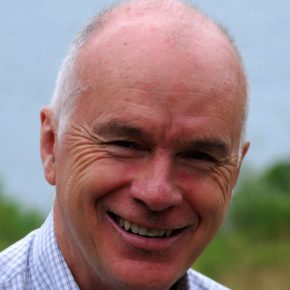
https://www.cheoresearch.ca/research/find-a-researcher/alex-mackenzie/
Alex MacKenzie is an attending pediatrician at the ChildrenŌĆÖs Hospital of Eastern Ontario(CHEO) in Ottawa, Canada and has served as the CEO and Science Director of the CHEOResearch Institute as well as Vice President of Research for both CHEO and CanadaŌĆÖs federalgenomic research funding agency, Genome Canada. In addition to being a founding scientist ofthe AeGera biotech company, Dr. MacKenzieŌĆÖs laboratory has conducted translational researchon the rare pediatric disorder spinal muscular atrophy over the past 25 years; in recent years ithas broadened its focus through the enhanced Care for Rare project to search for therapies for a larger number of rare genetic diseases.
——————————————————————————————————————–
Honorary FCIHR Board Members
Dr. Aubie Angel
President Emeritus, FCIHR
BIOGRAPHICAL SKETCH
Aubie Angel, C.M., MD, BSc (Med), MSc (Exp Med), FRCPC, FCAHS
Professor Emeritus, University of Manitoba
President Emeritus, Friends of Canadian Institutes of Health Research
Senior Fellow, Massey College, University of Toronto
Dr. Aubie Angel grew up in Winnipeg and obtained his MD at the University of Manitoba in 1959 and then trained as a clinician-scientist at McGill University in the Department of Experimental Medicine under the supervision of Dr. Charles H. Hollenberg. He completed Fellowship training in Internal Medicine and Diabetes in the McGill program and then was appointed MRC scholar in the Departments of Pathology and Medicine, where his research focus in adipose tissue and lipoprotein metabolism flourished.
Dr. Angel moved to Toronto in 1968 to join the Department of Medicine and the Endocrine Metabolic Division at the Toronto General Hospital. He rose to become Professor of Medicine and the Director of the Institute of Medical Sciences and Director of the Clinical Sciences Division at the University of Toronto. In 1990, he was appointed Professor and Head, Dept of Internal Medicine, University of Manitoba and Head of Medicine at the Health Sciences Centre in Winnipeg. The Aubie Angel Young Investigators Award for Clinical Research was established in his honour and was appointed Emeritus Professor of the University of Manitoba in 2012.
Dr. Angel has published 97 scientific papers, 11 book chapters and edited 13 books. He organized, produced and published the Proceedings of 6 major Roundtable discussions and also produced and edited 120 YouTube video clips based on videorecorded conferences, symposia and Friesen Prize Lectures.
He was founding President of a number of Canadian academic and advocacy organizations including the Friends of Canadian Institutes of Health Research (2000). He initiated the Henry G. Friesen International Prize in Health Research (2005) and launched the Video History of Medicine in Canada Project [www.fcihr.ca and Twitter: @friendsofcihr] featuring Distinguished Professor of History Dr. Michael Bliss. Dr. Angel maintained a clinical practice in Endocrinology and Metabolic disease throughout his career.
Dr. Angel has had a lifelong interest in promoting health research and guiding young scholars in academic careers. Since 2005, he has mentored Junior Fellows in the health sciences at Massey College, where he served as a member of the Board and is the Founding Mentor of Massey Grand Rounds. In 2015, he was appointed to the Order of Canada by the Governor General: ŌĆ£For his contributions to endocrinology and to the establishment of health organizations in CanadaŌĆØ. In June 2021, he received the Individual Leadership in Advocacy Award of Research Canada.
——————————————————————————————————————–
Dr. Henry Friesen (Honorary Board Member, FCIHR)
https://news.umanitoba.ca/dr-henry-g-friesen-appointed-distinguished-fellow-of-cahs/
Born in Morden, Manitoba, Dr. Friesen attended the University of Manitoba and graduated in science and medicine in 1958. He trained as an endocrinologist at the New England Center Hospital, Boston, and was named a fellow of the Royal College of Physicians and Surgeons of Canada in 1963.
In 1965, he was appointed to McGill University and Royal Victoria Hospital. In 1973, he moved to Winnipeg and the University of Manitoba where he served until 1991 as professor and head of the department of physiology, and professor of medicine.
He discovered and successfully isolated and purified the human pituitary hormone prolactin and determined that excessive circulating prolactin caused infertility. This observation laid the groundwork for other investigators and resulted in the development of an antagonist drug, bromocriptine, to treat this cause of infertility.
Dr. FriesenŌĆÖs influence on academic medicine has gone far beyond his own field of research. In 1991, he was appointed president of the Medical Research Council of Canada, the pre-eminent leadership position in Canadian medical research. The Canadian Medical Discoveries Fund, the Canadian Breast Cancer Initiative, the Canadian Health Services Research Foundation and the partnership between the Council and the pharmaceutical industry are some of the outgrowths of Dr. FriesenŌĆÖs imaginative leadership and determination.
In the mid-1990s, he chaired a working group that led to the creation of the Canadian Health Services Research Foundation, and in 2000, he was appointed the founding chair of Genome Canada, the federal governmentŌĆÖs lead corporation supporting genomics research in Canada and served in that role for five years.
In 1998, the U of M awarded Dr. Friesen an honorary doctor of science degree, and also recognized FriesenŌĆÖs achievements through the creation of the Henry G. Friesen Endowed Chair in Metabolic and Endocrine Diseases.
Dr. Bruce McManus (Honorary Board Member, FCIHR)
https://www.hli.ubc.ca/researchers/bruce-mcmanus/
Professor Emeritus
Departments
Pathology and Laboratory Medicine, UBC
Current Studies
Biomarker signature development for heart allograft rejection
Myocarditis detection and mechanisms
Elephant heart morphology
About
I have entered my 27th year as faculty at the University of British Columbia. In the focused scientific sense, I have remained intent on answering worthwhile questions about heart allograft rejection, its mechanisms, detection and monitoring, and on issues related to enteroviral damage of myocardium as one pathway to heart failure. I have had the privilege of working with many colleagues and in mentoring numerous trainees in science and clinics regarding heart health, disease and relevant biology. I have enjoyed participation in many organizations locally and globally in this learning journey. It is a pleasure to continue.
Education & Training
BA ŌĆō University of Saskatchewan, 1967
MSc ŌĆō Pennsylvania State University, 1969
PhD ŌĆō University of Toledo, 1972
PDF ŌĆō University of California Santa Barbara, 1973
MD ŌĆō University of Saskatchewan, 1977
Residency ŌĆō Harvard University/Peter Bent Brigham Hospital, 1980
PDF ŌĆō National Heart, Lung and Blood Institute, NIH, 1982
Faculty Member ŌĆō University of Nebraska Medical Centre, 1993
Faculty Member- University of British Columbia, Present.
Area of Interest
Mechanisms of acute immune rejection of heart allografts
Mechanisms of chronic immune rejection of heart allografts
Detection of acute cellular rejection of heart allografts
Mechanisms of viral heart disease and cardiomyopathies
Means for preventing myocardial damage in cardiomyopathies
Elephant cardiovascular system
Team Members
Amrit Singh, PhD ŌĆō Post-doctoral fellow
Paul Hanson, PhD ŌĆō Post-doctoral fellow
The PROOF Centre team
Alternate Webpage
https://hearthockca.ipage.com/
——————————————————————————————————————–
FCIHR Board Members
Dr. Andrea Baumann (Director, FCIHR)
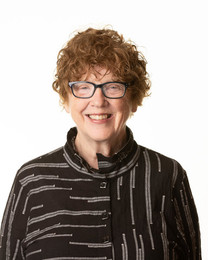
https://nursing.mcmaster.ca/faculty/bio/dr.-andrea-baumann
Dr. Andrea Baumann is the Associate Vice-President of Global Health, Director of the WHO Collaborating Centre in Primary Care and Health Human Resources and Fellow in the Canadian Academy of Health Sciences. Dr. Baumann is widely recognized for her leadership, research and innovation. She has a history of guiding significant initiatives that have had an impact on health systems. She developed a transnational consortium model of graduate education that has received national and international awards. During her tenure as board chair, she amalgamated three large hospitals and created a more effective governance structure.
Dr. Baumann has over 200 peer-reviewed publications, including four books, and she is considered a methodological expert in health systems, human resources and workforce integration. Her work emphasizes the critical link between evidence, policy and practice. Foci include the effect of policy on the employment integration of internationally trained healthcare professionals, emerging trends in infectious disease and potential outcomes for health human resources and the influence of transdisciplinary collaboration on health education.
Dr. Morley Hollenberg (Director, FCIHR)
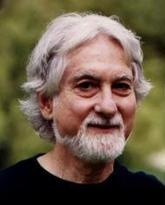
https://cumming.ucalgary.ca/departments/physiology-pharmacology/morley-hollenberg
Professor
Snyder Institute for Chronic Diseases
BSc (Honours, Chemistry)
University of Manitoba
MSc (Chemistry)
University of Manitoba
D Phil (Pharmacology)
Oxford University
MD
Johns Hopkins University School of Medicine
Research Activities
My research interests over time have focused on the biosynthesis and actions of peptide hormones (oxytocin, vasopressin, insulin, epidermal growth factor) and on the molecular pharmacology and pathophysiology of receptor-mediated signaling by growth factors and G-protein coupled receptors (GPCRs). This focus seeks to understand rapid events occurring in tissues like smooth muscle, responsible for the regulation of blood vessel and intestinal motility. Recent work is studying the hormone-like signaling properties of proteinases that act in part via the ŌĆśproteinase-activated receptor (PAR)ŌĆÖ family of GPCRs. The PARs regulate diverse pathophysiological processes ranging from vascular angiogenesis and contractility to arthritic and intestinal inflammation and pain. As one major focus, we are studying the activation of these receptors (PARs 1, 2 and 4) by thrombin, trypsin and other serine proteinases, like the tumour-derived tissue kallikrein family. We are particularly interested in the signalling pathways for the PARs that are in common with those for growth factor receptors, resulting in the activation of cellular tyrosine kinase pathways in the vasculature and other target tissues. A major direction related to signaling by proteinases seeks to identify, with the use of activity-based covalent proteinase labeling probes and proteomic analysis, those serine proteinases responsible for regulating cell and tissue function via the PARs in the settings of health and disease.
Dr. Brian Postl (Director, FCIHR)
https://umanitoba.ca/health-sciences/deans-office
Dr. Brian Postl has been named a member of the Order of Canada for his leadership of, and involvement in, the advancement of clinical and academic health care in Manitoba.
The dean of Max Rady College of Medicine, dean of Rady Faculty of Health Sciences and vice-provost (health sciences), University of Manitoba was one of 114 new appointments to receive one of the countryŌĆÖs highest honours in November 2020.
Since 1967, the Order of Canada has been awarded to people who make extraordinary contributions to the nation. The appointments are made by the Governor General on the recommendation of the advisory council for the Order of Canada.
Dr. Postl was appointed dean of the Rady Faculty of Health Sciences in 2014 and has been dean of the Max Rady College of Medicine since 2010. Under his leadership, he brought together the Dr. Gerald Niznick College of Dentistry, Max Rady College of Medicine, and the Colleges of Nursing, Pharmacy and Rehabilitation Sciences to create one faculty.
The University of Manitoba medical school graduate, Class of 1976, has held several leadership roles at his alma mater. He has served as head of the departments of pediatrics and child health, and community health sciences at the Max Rady College of Medicine. He was also the director of the J.A. Hildes Northern Medical Unit (now Ongomiizwin-Health Services) and the community medical residency program.
Dr. Postl has made many contributions at the local, provincial and national levels. He was the founding president and chief executive officer of the Winnipeg Regional Health Authority, a founding member of the Winnipeg Poverty Reduction Council, served as co-chair of the PremierŌĆÖs Economic Advisory Committee, and was chair of Research Manitoba. In 2005, Postl was appointed federal wait time advisor to the prime minister.
As medical school dean, Dr. Postl has led policy changes to admissions criteria in medicine to create a student body that more closely reflects the demographics of ManitobaŌĆÖs population, including rural, French/English bilingual stream, Indigenous admissions processes and new guidelines aimed at advantaging historically under-represented individuals related to socio-economic, sexual orientation and socio-cultural conditions.
Dr. Postl is focused on advocacy through his policy and public service work for equitable and comprehensive health care for Indigenous communities, which is reflected in his commitment to the establishment of the Rady FacultyŌĆÖs Indigenous Institute of Health and Healing-Ongomiizwin and the Rady FacultyŌĆÖs Truth & Reconciliation Commission action plan.
He has also championed Equity, Diversity and Inclusion across the Rady Faculty and supported the passage last summer of the countryŌĆÖs first Disruptions of all Forms of Racism policy at a post-secondary institution.
Dr. Lynne-Marie Postovit (Director, FCIHR)
https://dbms.queensu.ca/faculty/lynne-marie-postovit
Dr. Postovit earned her Bachelor of Science (Honours) at QueenŌĆÖs University in 1999. After receiving her PhD in Anatomy and Cell Biology at QueenŌĆÖs, Dr. Postovit completed a CIHR Postdoctoral Fellowship at Northwestern University in the Department of Cancer Biology and Epigenomics. Dr. Postovit was an Assistant Professor at Western University from 2007-2013 and has been an Associate Professor at the University of Alberta since 2014, where she co-directed the Cancer Research Institute of Northern Alberta.
As a recognized authority on ovarian cancer, Dr. Postovit has published more than 60 papers in peer-reviewed journals, including the International Journal of Molecular Science, Frontiers in Immunology, and Scientific Reports. Dr. Postovit has been invited to present her work at national and international research institutes and conferences, including the Karolinska Institute in Sweden and the Canadian Cancer Research Conference. In 2009, she was the recipient of the Peter Lougheed/CIHR New Investigator Award. Demonstrating excellence as a researcher, Dr. Postovit was elected as a Member of the Royal Society of CanadaŌĆÖs College of New Scholars, Artists, and Scientists in 2016.
In addition to her prolific research output, Dr. Postovit has made remarkable contributions to the wider community through her service to the profession. She serves on the editorial boards of Oncology Signaling, Scientific Reports, and the Journal of Cell Communication and Signaling. In 2018, Dr. Postovit chaired the Canadian Conference on Ovarian Cancer Research and was an organizing committee member for the Canadian Oxidative Stress Consortium. She has made outreach and public-facing research a priority as part of her career, participating in a number of community events such as Ovarian Cancer Canada Run for Hope and the Royal Alex Foundation.
Dr. Linda Rabeneck (Director, FCIHR)
https://cahs-acss.ca/linda-rabeneck/
Dr. Linda Rabeneck, a physician, clinician scientist and health care executive, is Vice President, Prevention and Cancer Control at Cancer Care Ontario, Professor of Medicine and Professor, Dalla Lana School of Public Health at the University of Toronto, and Senior Scientist at the Institute for Clinical Evaluative Sciences (ICES) in Toronto.
Dr. Rabeneck received her MD from the University of British Columbia (UBC), followed by post-graduate training in Internal Medicine and Gastroenterology at UBC and the University of Toronto. She received her MasterŌĆÖs degree in Public Health (MPH) from Yale University, where she trained as a Robert Wood Johnson Clinical Scholar.
Dr. Rabeneck, whose scholarly work involves the evaluation of health care interventions and health system performance, is best known for her research on the quality and effectiveness of colorectal cancer screening. She has authored approximately 230 peer reviewed publications.
Dr. Rabeneck played a leadership role in the launch of ColonCancerCheck in Ontario, CanadaŌĆÖs first organized, province-wide colorectal cancer screening program. Under her leadership, Ontario was also the first province in Canada to launch an organized screening program for women at high risk of breast cancer and to launch a pilot of organized lung screening for persons at high risk of the disease.
Dr. Rabeneck is Chair, Colorectal Cancer Screening Committee of the World Endoscopy Organization (WEO), Associate Editor of Gastroenterology, Master of the American College of Gastroenterology (ACG), recipient of the ACGŌĆÖs Berk/Fise Clinical Achievement Award, and recipient of UBCŌĆÖs Medical Alumni Association Wallace Wilson Leadership Award. Dr. Rabeneck was elected President of the Canadian Academy of Health Sciences in 2017.
Dr. Stephen Robbins (Director, FCIHR)
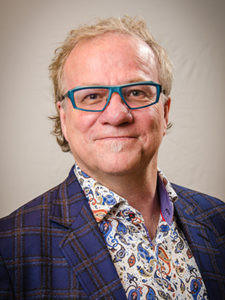
https://www.ladydavis.ca/en/director
Stephen M. Robbins Ph.D. is the Director of the Lady Davis Institute at the Jewish General Hospital, Glaxo Smith Kline Chair in Pharmacology and Professor in the Gerald Bronfman Department of Oncology at McGill University. In 2013 he was appointed as the Scientific Director of the Canadian Institutes of Health Research, Institite of Cancer Research and has served two terms.
He completed his undergraduate degree at York University in 1985 and then completed his PhD in 1991 at the University of British Columbia in the Department of Microbiology and Immunology. He obtained his passion for cancer research while pursuing his postdoctoral studies (1991-1996) under Nobel laureate, Dr. J. Michael Bishop at the University of California at San Francisco. He joined the University of Calgary in 1996 where he elevated to the rank of Professor in the Departments of Oncology and Biochemistry and Molecular Biology. He finished his final term as a Scientist of the Alberta Innovates Health Solutions (formerly known as the Alberta Heritage Foundation for Medical Research) and held a Canada Research Chair Tier 2 in Molecular Genetics of Cancer. From 2009-2013 he was the Director of the Southern Alberta Cancer Research Institute and was the Associate Director Research for Alberta Health Services Cancer Care. In addition to serving as the Scientific Director of ICR he is the current Chair of Governing Council for the International Agency for Research on Cancer (Lyon, France) and past Chair of the Canadian Cancer Research Alliance.
Pr. Robbins has had a long-standing interest in understanding the biochemical circuitry that controls cellular proliferation and differentiation and how this circuitry goes awry in cancer. During his research career he has taken a more translational approach including defining new therapies for malaria, has discovered a novel class of anti-inflammatory agents and identified new therapeutic targets for brain tumours. Recently a peptide that he and his colleagues discovered has moved to a Phase 2 clinical trial in hospitalized COVID-19 patients. In addition to maintaining a productive research program he is also committed to teaching and graduate education and has won several awards with respect to these activities.
Dr. Robert (Bob) Roberts (Director, FCIHR)
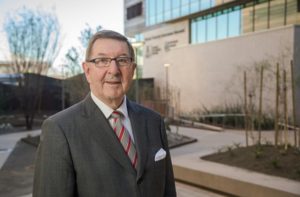
https://phoenixmed.arizona.edu/newsroom/news/faculty-spotlight-robert-roberts-md
Whether it was saving the Prince of Saudi ArabiaŌĆÖs life, co-discovering more than 60 genes related to coronary artery disease, consulting for NASA or developing the quantitative test that has been used to diagnose heart attacks for three decades, Robert Roberts, MD, has advanced health care across the world as the cardiologist who brought molecular biology and genetics to heart disease.
Dr. Roberts, a professor at the University of Arizona College of Medicine ŌĆō Phoenix and department chair of the International Society for Cardiovascular Translational Research (ISCTR) ŌĆö a nonprofit organization founded by Nabil Dib, MD, to expedite scientific discovery to clinical applications ŌĆö is a renowned physician, who has trained more than 400 cardiologists. Many of his students are trained in both cardiology and molecular biology and have gone on to become chiefs of cardiology and chiefs of medicine; one even became the president of Ecuador.
ŌĆ£Bringing the techniques of molecular biology to cardiologists has been a large accomplishment in my life,ŌĆØ he said. ŌĆ£I saw it as the future, but many did not for a good reason. Molecular biology is all about growth, and the heart is a terminally differentiated organ, meaning it doesn’t grow any new cells. However, I believed in the techniques. I knew the problems I wanted to answer ŌĆö that my conventional techniques couldn’t answer ŌĆö and I could see where they were going to make a difference.ŌĆØ
As part of his role at the UA College of Medicine ŌĆō Phoenix, Dr. Roberts teaches molecular biology and genetics of the heart. And in his year and half at the ISCTR, the organization has developed an online course with faculty from across North America. The course is planned to go live in August 2017.
ŌĆ£My goal at the college is to try and enhance the reputation of the medical school by providing leadership in research and developing centers of excellence between the Banner Health Care system and the University of Arizona,ŌĆØ Dr. Roberts said.
Dr. Roberts grew up in Newfoundland, Canada. He always knew that he wanted to do something that involved people, and he narrowed his choices down to joining the seminary or applying to medical school. He spent one year in the seminary and then decided to pursue medicine.
ŌĆ£My parents were happy either way,ŌĆØ Dr. Roberts said. ŌĆ£In my home, my parents felt that people had to give back to the community. It was a part of life.ŌĆØ
Dr. RobertsŌĆÖ accomplished career as a geneticist and cardiologist includes leading the cardiology department at Baylor College of Medicine in Houston for 23 years and serving as the President and CEO of the University of Ottawa Heart Institute, UOHI, where he completed two five-year terms.
Under Dr. RobertsŌĆÖ leadership, the UOHI flourished. Patient wait times decreased from six months to three weeks; several diagnostic and therapeutic laboratories were added; he founded and directed the Ruddy Canadian Cardiovascular Genetics Centre; and established the Research Methods Centre. The research endowment tripled from $15 million to $55 million, as well. UOHI achieved world recognition for its research impact, being ranked by Scimago Institutions Rankings, a science evaluation resource, in the top 2 percent of 3,043 institutions worldwide.
Among Dr. RobertsŌĆÖ several accomplishments, the most notable are developing the MBCK quantitative test, which has been used as the gold standard to diagnose heart attacks for three decades, and discovering several genes responsible for heart disease, including the first gene for atrial fibrillation, WPW Syndrome and Coronary Artery Disease (9p21). In total, he has co-discovered more than 60 genes associated with CAD.
From 1987 until 2002, Dr. Roberts was a consultant to NASA.
ŌĆ£My most singular moment was when I gave permission for John Glen to go into space,ŌĆØ Dr. Roberts said. ŌĆ£As a result of that, my wife and I were invited to watch the takeoff from Cape Kennedy. We also met several of the astronauts at dinner that night. It was a great experience.ŌĆØ
Throughout his career, Dr. Roberts has been able to combine his love for travel and history. He has traveled extensively, and as chief of cardiology at Baylor, he participated in an affiliate hospital in Istanbul, where he took care of the royal family in Saudi Arabia as its main cardiologist. He has traveled across the world to give prestigious presentations, including the Opening Plenary Address of the American College of Cardiology, the Japanese College of Cardiology and the Australian and New Zealand Heart Association.
ŌĆ£When I went to places like Cairo and saw the poverty, I really gained a new perspective,ŌĆØ Dr. Roberts said. ŌĆ£I always tell my wife and children ŌĆśDonŌĆÖt complain to me, you are beyond that. YouŌĆÖve got more than you will ever need. Go with it.ŌĆÖ I feel most days are more positive and grateful when I think of those months traveling.ŌĆØ
Dr. Roberts completed his undergraduate degree from Memorial University, went to medical school at Dalhousie University and completed his residency at Dalhousie University and the University of Toronto. Dr. Roberts has furthered his training with multiple fellowships, including one in cardiology at the University of Toronto in 1971 and a research fellowship at the University of California San Diego. He has received many awards for his scientific contributions, including the Distinguished Scientist of American College of Cardiology and election to the Academy of Scientists of the Royal Society of Canada.
Dr. Bhagirath Singh (Director, FCIHR)

https://www.schulich.uwo.ca/microbiologyandimmunology/people/Bhagi%20Singh.html
Professor Emeritus
Postdoc: Liverpool University, UK
Postdoc: University of Alberta, Canada
PhD: Agra University, Central Drug Research Institute, Lucknow, India
MSc: Rajasthan University, Jaipur, India
Area of Study:
Regulation of Type 1 diabetes by autoantigens, regulatory T cells and microbes
Fields of Interest:
-Autoantigens and Autoimmunity
-Regulatory T cells
-Type 1 diabetes
-Microbiome and Immunity
-Antigen presenting cells and dendritic cells
Research Profile
The focus of our work has been to develop specific immune-based approaches to investigate the regulation of autoimmunity by understanding the molecular, cellular and genetic basis of the regulatory T cell-mediated immune responses. Towards this goal we have investigated and reviewed the mechanism of disease prevention and islet tissue regeneration in autoimmune type 1 diabetes and the role that autoantigenic peptides, microbes and infections play in shaping our immune system at the T cell level.
Dr. Calvin Stiller (Director, FCIHR)
https://cdnmedhall.ca/laureates/calvinstiller
Championed innovation in health and biomedical research and pioneered multi-organ transplantation
A leading authority on immunology and organ transplantation
Dr. StillerŌĆÖs magic touch as a builder pervades every phase of his career. A physician, scientist, administrator, policy innovator and entrepreneur, Dr. Stiller developed one of the most dynamic organ transplant programs in the nation and championed countless other initiatives that have enriched research enterprise in Canada. It was Dr. Stiller who, in the late 1970ŌĆÖs, obtained the promising new drug cyclosporine and organized its first multi-centre clinical trial in kidney transplantation in North America, creating the foundation for subsequent studies that put Canada on the world stage. He was responsible for the ground-breaking research that showed that cyclosporine, an immunosuppressant, could halt the progression of Type 1 Diabetes ŌĆō demonstrating that it was an immune disorder.
Impact on lives today
Dr. StillerŌĆÖs ground-breaking research and tireless promotion of organ transplantation continues to sustain life-saving work. When Dr. Stiller began his career in medicine, less than 50 organ transplants were performed in London each year. As of 2004, there were over 200 and in 2019 there were over 3,000 across Canada. Additionally, in a lifetime an individual might be successful in creating one institution or program. Dr. Stiller has been the architect of many, including the Medical Hall of Fame. His visionary building of public and private institutions has created a legacy that for many years will advance Canadian research, employ thousands of individuals, and raise the profile of Canadian innovation around the world.
 Click here to Download Brief Bio – Dr. Lorne Tyrrell
Click here to Download Brief Bio – Dr. Lorne Tyrrell
Dr. Lorne Tyrrell (Director, FCIHR)
Dr. David Lorne J. Tyrrell, OC, AOE, MD, PhD, FRCP, FRSC, FCAHS, is a Distinguished Professor at the University of Alberta with major interests in the prevention and treatment of viral diseases. His multi-faceted career in academic medicine, virology, pharmaceutical enterprise, and dedicated advocacy for health research in Canada are being honoured with the 2021 Henry G. Friesen International Prize in Health Research. Dr. Lorne Tyrrell is a gold medalist at the University of Alberta, where he obtained an MD in 1968 and a PhD at QueenŌĆÖs University in 1972. He completed Internal Medicine and sub-specialty training in Infectious Diseases and post-doctoral training in Virology at the Karolinska Institute.
Dr. Tyrrell led the Faculty of Medicine and Dentistry from 1994-2004 as Dean. In this capacity, Health Sciences at U Alberta flourished with major capital developments, including the Katz Group ŌĆō Rexall Centre for Pharmacy and Health Research and the Li Ka Shing Centre for Health Research Innovation. During this period, Dr. Tyrrell assumed national responsibilities and chaired the Association of Canadian Medical Colleges , through which he facilitated the transition of the Medical Research Council to the Canadian Institutes of Health Research (CIHR). Dr. TyrrellŌĆÖs leadership style, his prescience and sound judgement led to a number of important Board chairmanships, including the Institute of Health Economics (IHE), the Gairdner Foundation Board and memberships in the Science Advisory Board of Health Canada and the National Vaccine Task Force.
Dr. TyrrellŌĆÖs most celebrated life saving accomplishment in collaboration with Morris Robbins was the licensing of the first oral anti-viral drug for chronic HBV (Lamivudine) in 200 countries. This led to the establishment of the Li Ka Shing Institute of Virology in 2010 at the University of Alberta, where Dr. Tyrrell is its Founder and Director.
Dr. Tyrrell has received numerous awards including the Prix Galien Canada Research Award (1998), the Gold Medal of the Canadian Liver Foundation (2000), Alberta Order of Excellence (2000), Officer of the Order of Canada (2002), the Frederic Newton Gisborne Starr Award of the Canadian Medical Association (2004), and Fellow of the Royal Society of Canada (2004). Dr. Tyrrell was inducted into the Canadian Medical Hall of Fame (2011) and he was awarded the Killam Prize for Health Science (2015). In 2018, he received the FCIHR Award of Honour.
Dr. Tyrrell maintains active research programs in viral-host interactions, development of a HCV vaccine and an active program on SARS-CoV-2 vaccines, diagnostics, and antivirals. He has published more than 250 peer-reviewed papers. In his spare time, he tends to his 1000 acre farm.
——————————————————————————————————————–
Directors Emeriti
Dr. Paul Armstrong
University of Alberta
Le Dr Pierre Bois (d├®c├®d├®)
Universit├® de Montr├®al
Dr. David Evans
University of Alberta
Dr. Phil Gold
McGill University
Dr. Martin Hollenberg (deceased)
University of British Columbia
Dr. Rod McInnes
McGill University
Dr. Grant Pierce
St. Boniface Hospital – Albrechtsen Research Centre, Winnipeg
Past Board Members / Le Conseil dŌĆÖadministration (pass├®)
Dr. Stephanie Atkinson
McMaster University
Dr. Patricia Baird
University of British Columbia
Mr. Glenn G. Brimacombe
Canadian Psychological Association
Dr. Serge Carri├©re
Universit├® de Montr├®al
Mr. Michael Cloutier
InterMune, Canada
Dr. William “Bill” Cochrane (deceased)
University of Calgary
Dr. Juliette “Archie” Cooper
University of Manitoba
Dr. Henry Dinsdale
Queen’s University
Dr. John Foerster (deceased)
University of Manitoba
Dr. Cy Frank (deceased)
University of Calgary
Dr. Pavel Hamet
Universite de Montreal
Dr. David Hawkins (deceased)
Dalhousie University
Dr. Marie-Jos├®e H├®bert
Universit├® de Montr├®al
Dr. Charles Hollenberg (deceased)
University of Toronto
Mr. Patrick (Pat) Lafferty
PricewaterhouseCoopers
Dr. David McLean
British Columbia Cancer Agency
Dr. Barry McLennan
University of Saskatchewan
Ms. Cathleen Morrison
Canadian Cystic Fibrosis Foundation (past)
Dr. Cam Mustard
University of Toronto
Dr. Fraser Mustard (deceased)
McMaster University
Dr. Dorothy Pringle
University of Toronto
Dr. Emil Skamene
McGill University
Dr. Aubrey Tingle
University of British Columbia




